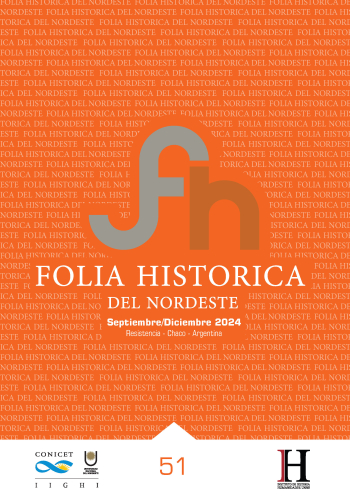The Municipality of Rosario during the democratic reopening. Actors, policies and conflicts during the administration of Horacio Usandizaga (1983-1987)
DOI:
https://doi.org/10.30972/fhn.517941Keywords:
Transición democrática, Municipio de Rosario, Política, Políticas públicasAbstract
This article addresses the first local government of Horacio Usandizaga in Rosario (1983-1987). It also explores the political dynamics and the main public policies implemented in the city council during those years. It shows the complexity of the transition to democracy, a process that at the same time entailed changes and persistence in the political and institutional sphere. The local perspective is articulated in a set of scales that includes the UCR (Unión Cívica Radical) national government and the Peronist provincial government. To do so, we have restored the network of actors who participated in the local council, as long as the relations between the Executive Department and the Deliberative Council. Problems resulting from the last military dictatorship have been studied, as so have been the public policies designed by the new democratic management. In this regard, corruption linked to concessions and bidding for the implementation of these policies is also explored. The persistence of certain situations is also detected in some areas of the city council, such as in the case of public health.
Downloads
Published
Issue
Section
License

This work is licensed under a Creative Commons Attribution-NonCommercial 4.0 International License.
Se deberá adjuntar una carta, en la que se declare que "el artículo titulado XXX”, es un trabajo original, que no ha sido ni total ni parcialmente publicado en ningún medio impreso o electrónico, que no ha sido remitido simultáneamente a otra publicación y que no se encuentra actualmente en proceso de evaluación en otra publicación. En el caso que sea aceptado para su publicación, transferimos los derechos de publicación a la revista Folia Histórica del Nordeste, quien asume los derechos para editar, publicar, reproducir, distribuir copias, electrónicas o multimedia e incluir el artículo en índices nacionales e internacionales o bases de datos. Por otra parte, dejamos constancia que las afirmaciones vertidas en el mismo son de exclusiva responsabilidad de las/los autoras/es". La carta deberá estar firmada por al menos uno de los autores.






